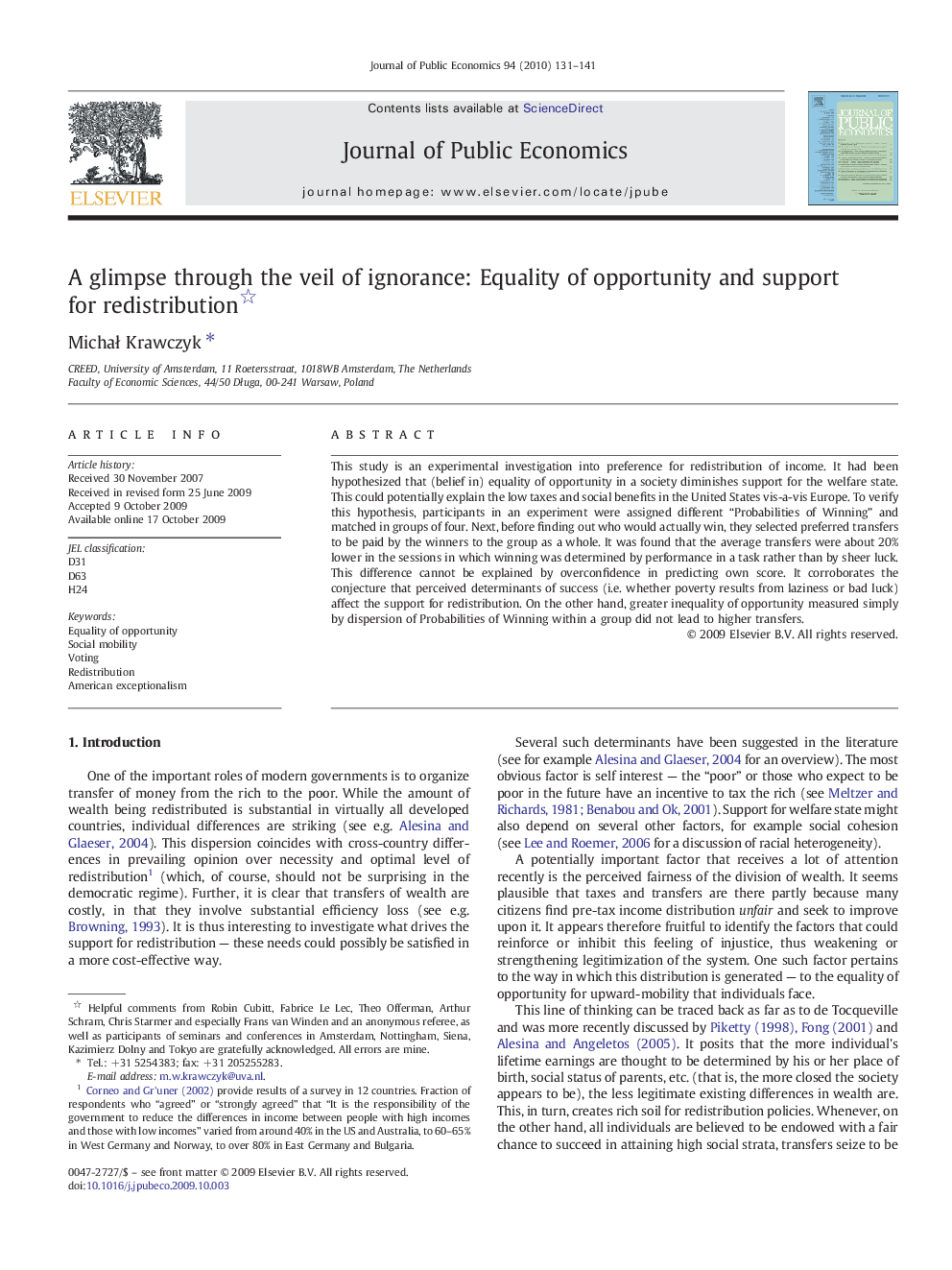| Article ID | Journal | Published Year | Pages | File Type |
|---|---|---|---|---|
| 970062 | Journal of Public Economics | 2010 | 11 Pages |
This study is an experimental investigation into preference for redistribution of income. It had been hypothesized that (belief in) equality of opportunity in a society diminishes support for the welfare state. This could potentially explain the low taxes and social benefits in the United States vis-a-vis Europe. To verify this hypothesis, participants in an experiment were assigned different “Probabilities of Winning” and matched in groups of four. Next, before finding out who would actually win, they selected preferred transfers to be paid by the winners to the group as a whole. It was found that the average transfers were about 20% lower in the sessions in which winning was determined by performance in a task rather than by sheer luck. This difference cannot be explained by overconfidence in predicting own score. It corroborates the conjecture that perceived determinants of success (i.e. whether poverty results from laziness or bad luck) affect the support for redistribution. On the other hand, greater inequality of opportunity measured simply by dispersion of Probabilities of Winning within a group did not lead to higher transfers.
